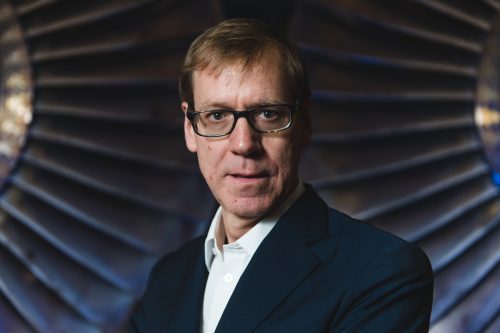More than 200 jobs to go with end of coal power at Drax

Almost 50 years of coal-fired electricity generation at Drax Power Station is due to end in March 2021.
Drax Group says it means its power station near Selby will stop using coal ahead of the Government’s 2025 deadline, but this will also result in a loss of up to 230 jobs.
Trades Unions and employee representatives will be consulted, and Drax says support is being provided to those affected.
The company is talking to the Government, trades unions and industrial businesses across the North about joining with Drax in establishing a Zero Carbon Skills Taskforce, to help people in the region gain the skills and expertise required to seize different job opportunities as the UK moves towards a net zero economy.
Drax CEO Will Gardiner said: “Stopping using coal is the right decision for our business, our communities and the environment, but it will have an impact on some of our employees, which will be difficult for them and their families.
“In making the decision for the UK to stop using coal and to decarbonise the economy, it’s vital that the impact on people across the North is recognised and steps are taken to ensure that they have the skills needed for the new jobs of the future.”
While Drax does not expect to use coal after March 2021, it says it will ensure its two remaining coal units remain available until September 2022 in line with its existing Capacity Market agreements.
Gardiner said: “Ending the use of coal at Drax is a landmark in our continued efforts to transform the business and become a world-leading carbon negative company by 2030.
“Drax’s journey away from coal began some years ago and I’m proud to say we’re going to finish the job well ahead of the Government’s 2025 deadline.”
Drax Power Station first started generating electricity using coal in the 1970s. Once the second half of the power station was built in the 1980s, it became the largest power station in the UK with the capacity to generate electricity for six million households.
Over the last decade four of the power station’s six generating units have been converted to use sustainable biomass, delivering carbon savings of more than 80% compared to when they used coal.
Gardiner said: “By using sustainable biomass we have not only continued generating the secure power millions of homes and businesses rely on, we have also played a significant role in enabling the UK’s power system to decarbonise faster than any other in the world.
“Having pioneered ground-breaking biomass technology, we’re now planning to go further by using bioenergy with carbon capture and storage (BECCS) to achieve our ambition of being carbon negative by 2030, making an even greater contribution to global efforts to tackle the climate crisis.”
CEO of Generation at Drax, Andy Koss, said people whose jobs would be cut due to the closure of Drax’s coal units were being offered one year’s notice, with the first job losses not until April 2021.
“We do want to look after the people affected and treat them well,” he added. “Some of them have worked for us for many years, and it’s something we’ll be picking up on through consultation with union representatives.
“The coal units will formally close in September 2022. We now have four units running on biomass and we’re continuing to invest in the plant. We still have a very viable business.
“Ten years ago we saw that the writing was on the wall for coal, and our transition has been a long journey. Just four per cent of our energy generation was from coal in 2019 – it’s very much a fuel of the past.
“The changes have cost us a lot of money and we’ve had to take risks, but it is paying off.
“We’ll be fitting carbon capture and storage here at the plant and our pilot project is going very well. We’ve had good support from the Government.
“We’re looking forward to the Budget to see what more details it will contain in terms of supporting carbon capture and storage.”
:::
Drax Group has also released its full year results for the 12 months ended 31 December 2019.
Total operating profit increased from £60m in 2018 to £62m. And the listed business recorded Group Adjusted EBITDA up 64% to £410m, (2018: £250m) which includes £114m from acquired hydro and gas generation assets.
Drax says a mild 2018/19 winter led to a challenging first half of the year. As a result, overall gross profit fell from £143m in 2018 to £134m in 2019.
Net cash from operating activities was up 33% to £413m. (2018: £311m)
The Board will recommend at its Annual General Meeting a final dividend that takes total dividends for the financial year to £63m, or 15.9 pence per share, an increase of £7m or 1.8 pence per share when compared to 2018.
Gardiner said: “Drax has delivered a strong set of full-year results following the successful integration of new hydro and gas generation assets and made good progress with its strategic initiatives to build a long-term future for sustainable biomass and be the leading provider of power system stability.
“Drax achieved these results while still delivering a 47 percent reduction in its carbon emissions compared with the previous year.”
“Drax remains fully committed to the regions where it operates and with the right regulatory and investment framework is well positioned to deliver its plans for Yorkshire and the Humber.”








